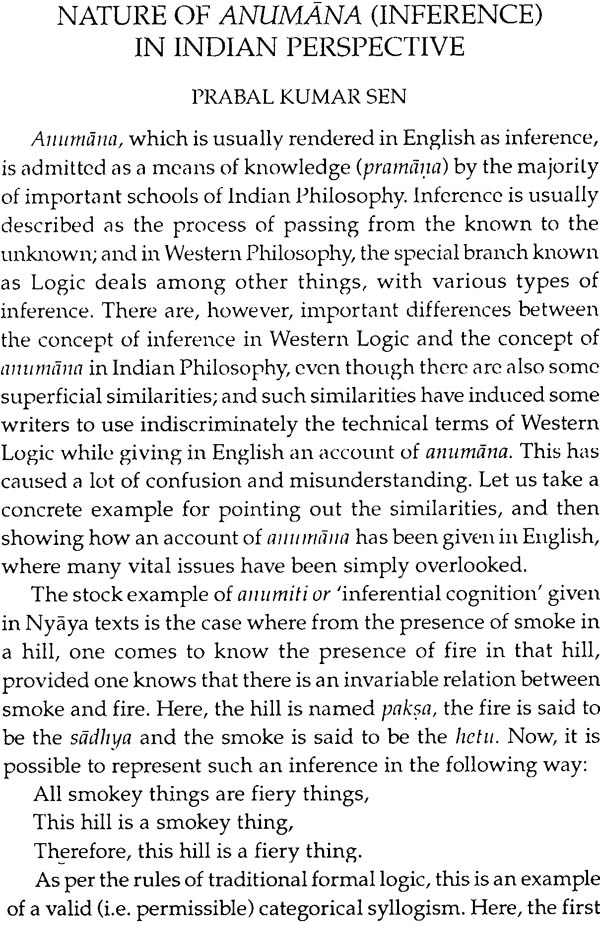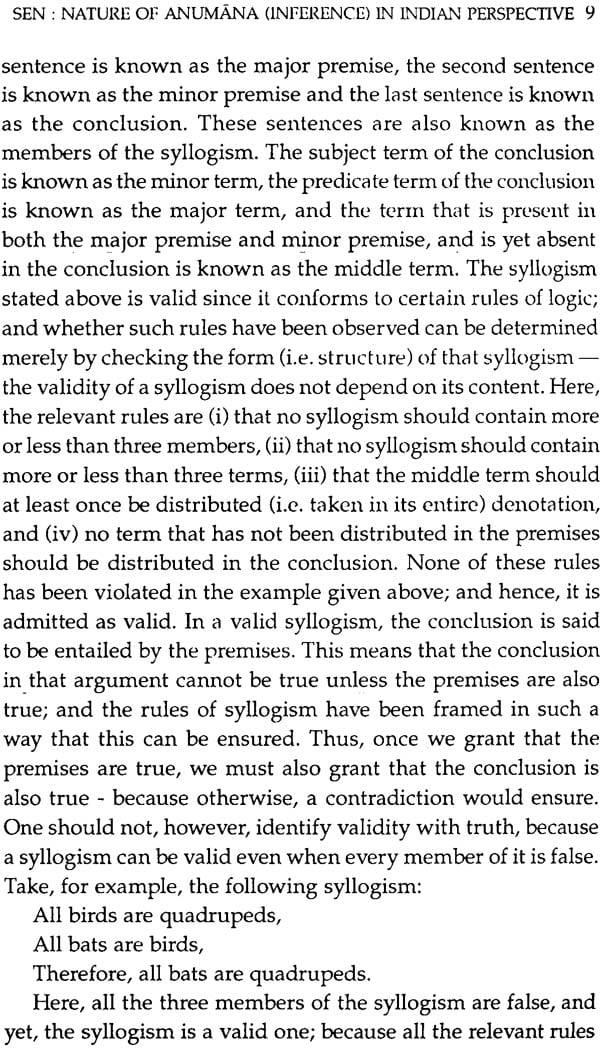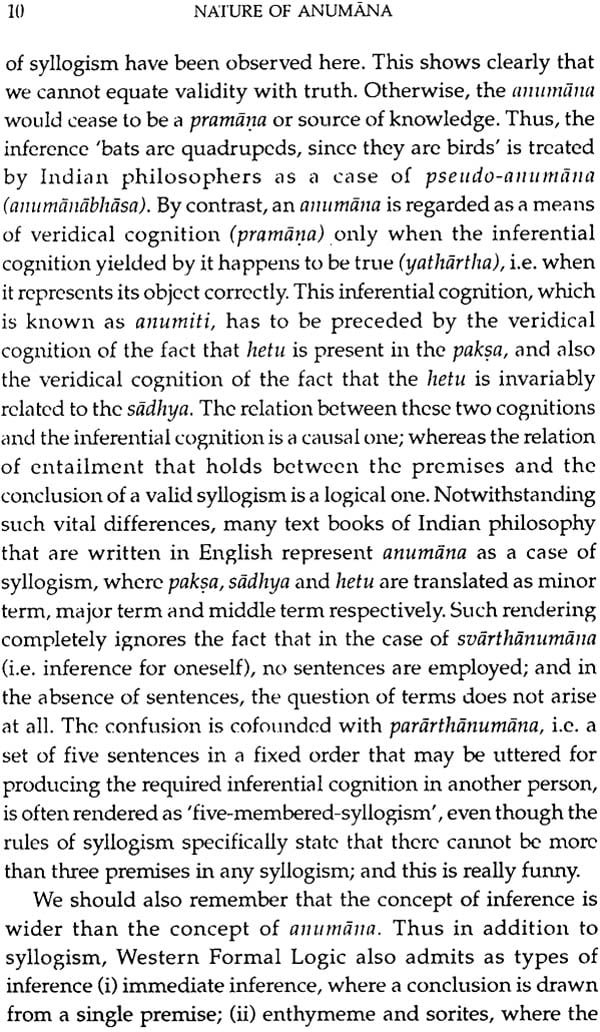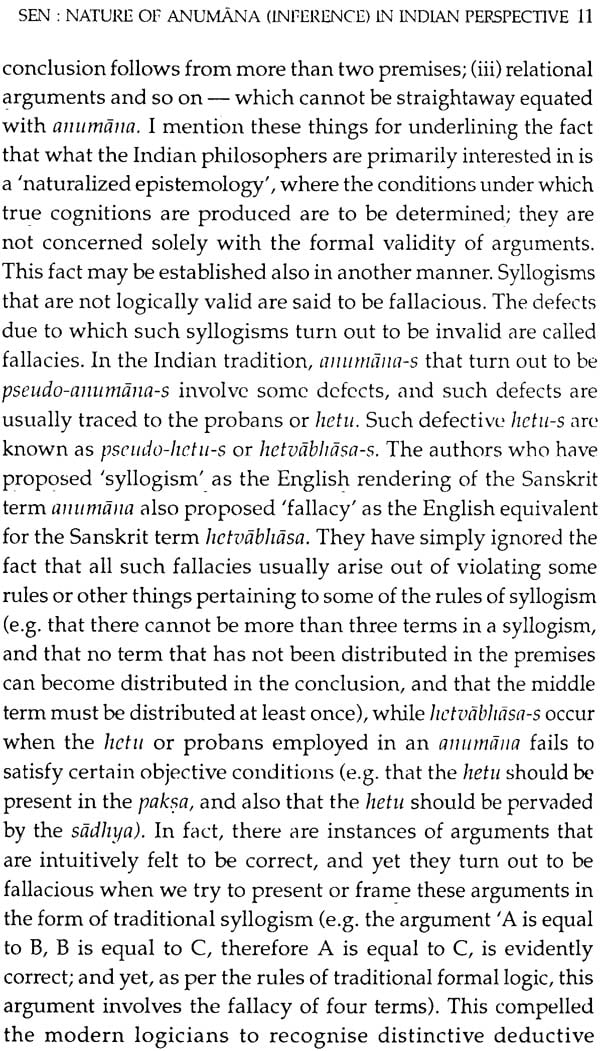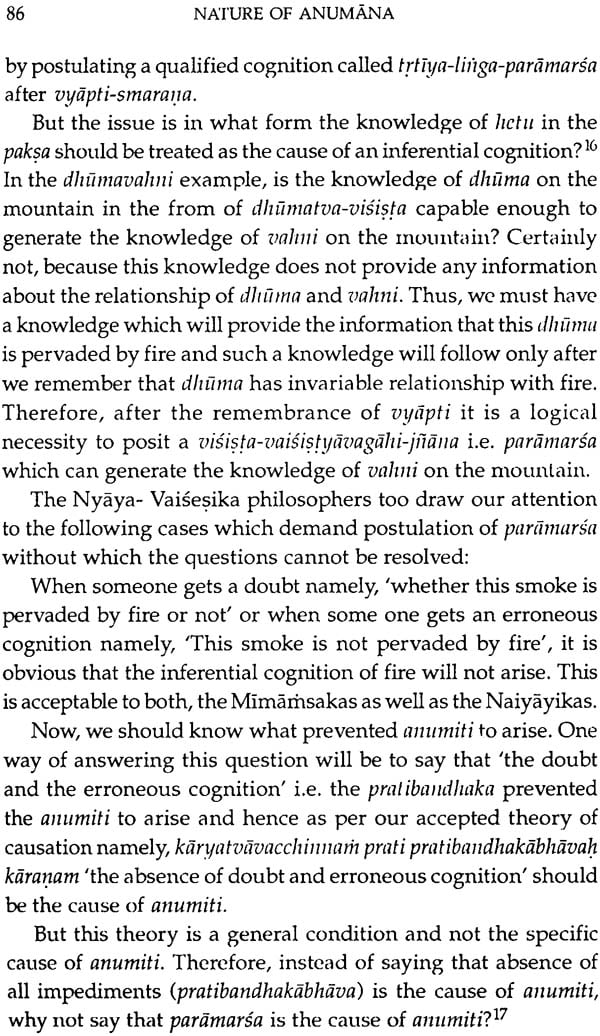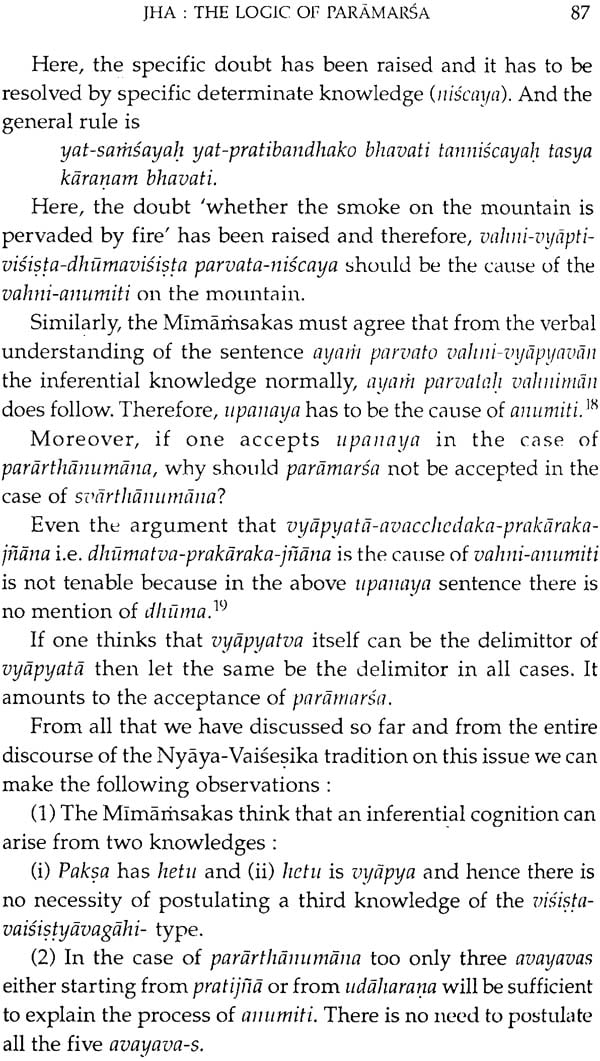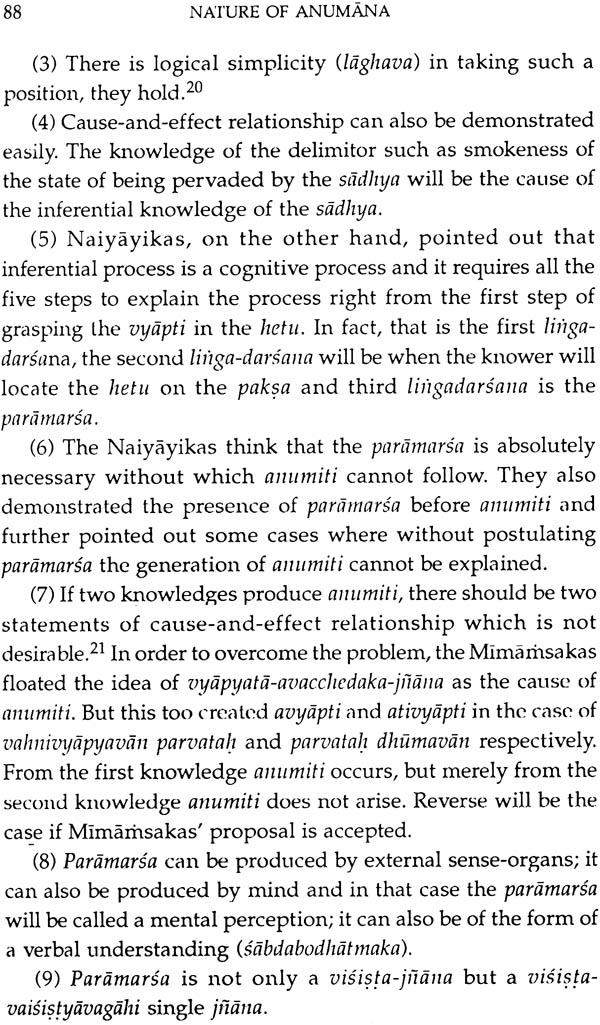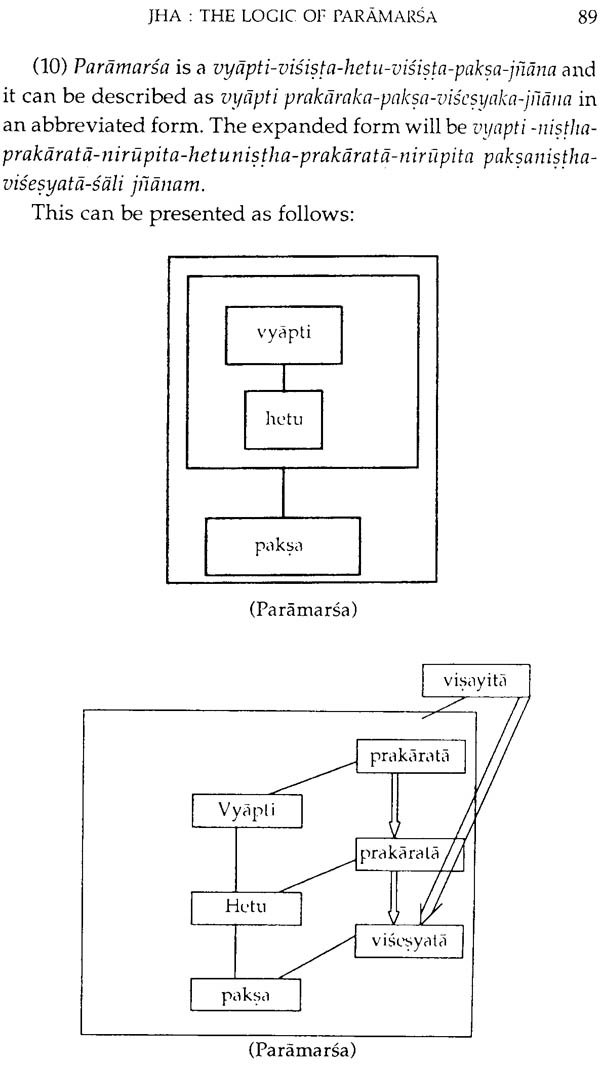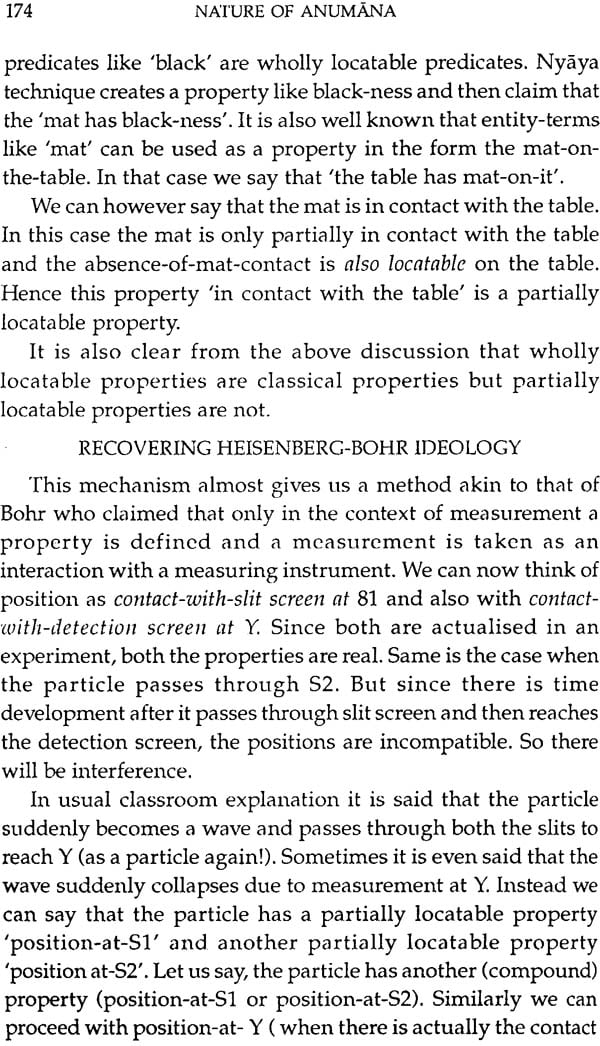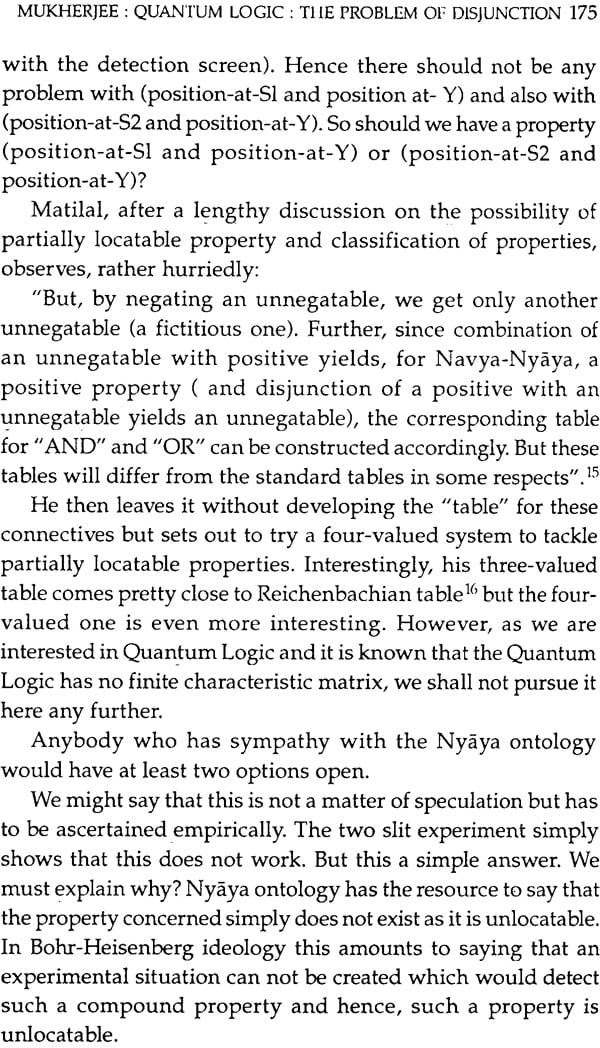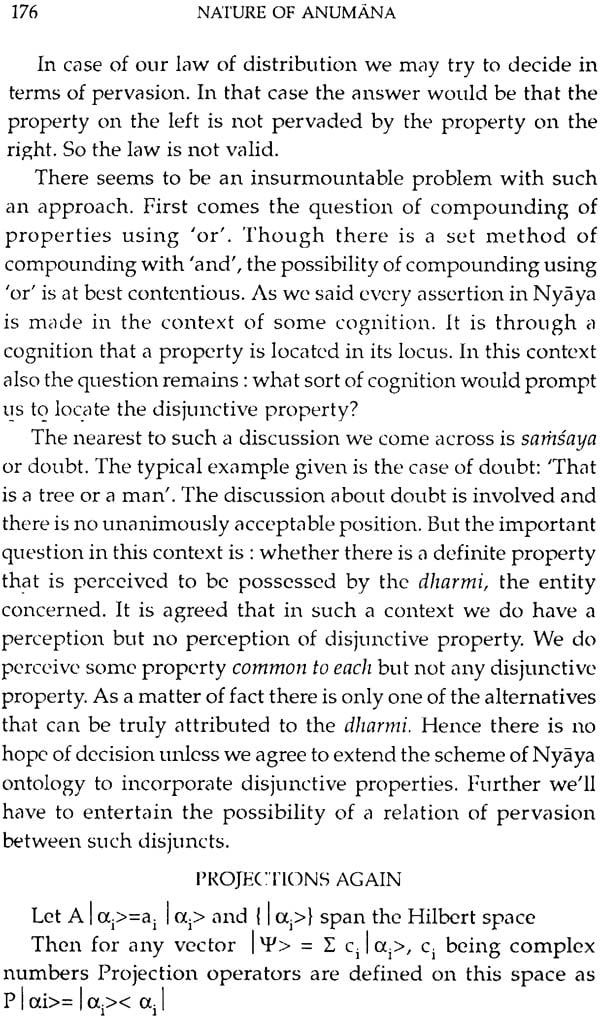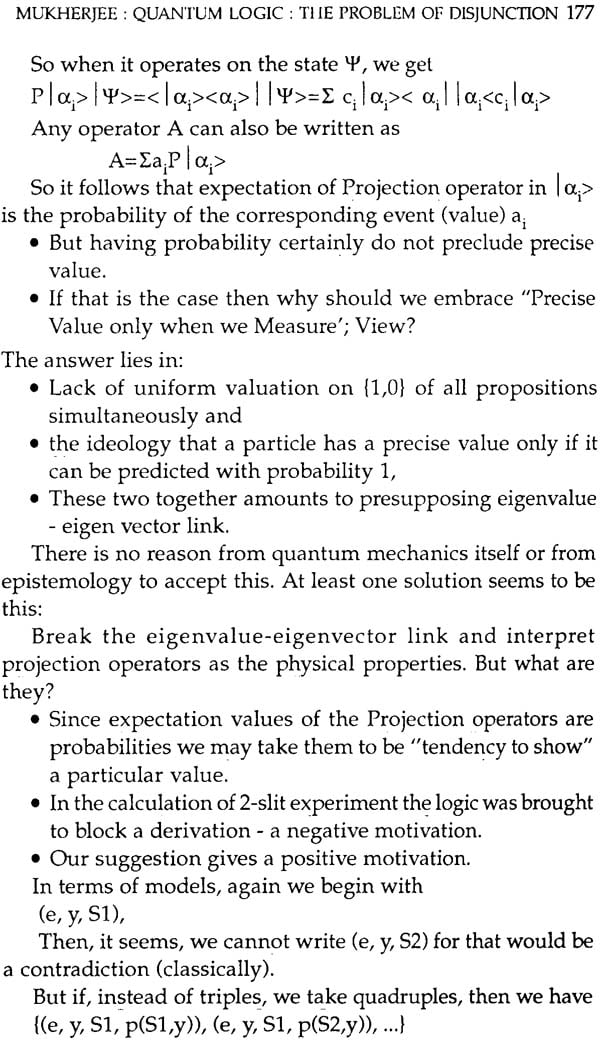
Nature of Anumana (Parmana)
Book Specification
| Item Code: | NAK364 |
| Author: | Subuddhi Charan Goswami |
| Publisher: | The Asiatic Society |
| Language: | English |
| Edition: | 2015 |
| ISBN: | 9789381574225 |
| Pages: | 221 |
| Cover: | Paperback |
| Other Details | 8.0 inch X 5.0 inch |
| Weight | 250 gm |
Book Description
The present treatise is a valuable collection of 19 highly specialised and well-documented research papers contributed by erudite scholars prominent in the field of Indian Philosophy, particularly in the branch of Nyaya. These papers were presented in the National Seminar on Nature of Anumana: An overview of Indian Theories, held by the Asiatic Society, Kolkata in February, 2009. But for unavoidable circumstantial reasons, the publication of the papers after their procurement from the contributors is complete after the gap of five years.
Anumana or Inference received special attention of the master logician Gangesa Upadhyaya and his followers from 12th to 17th century C.E. In our day-to-day discourse the term Anumana is seen to mean 'something' with the help of an already familiar fact. A considerable part of our daily life is regulated through our knowledge accrued by the application of Attumana; in human life it is an effectively settled and undeniable reality. In ancient India, Anumuna has been noticed to have been used frequently in the intellectual disciplines and thus attempts have been made by Indian philosophers to establish, through Anumdna, the validity of a fact or to construct foundation of new doctrines. It has been further noticed that Anumana took the part of "the medium of convincing others about the conviction of each school of thought". Anumana, as accepted by our early philosophers, had a great role to intellectuals in understanding and finding out the exactness of a lot of apparently complex thoughts, ideas and expressions.
The Seminar on Anumana organised by the Asiatic Society had drawn the attention of a good number of genuine scholars as well as participants and imparted full satisfaction to their appetite of knowledge. Professor Subuddhi Charan Goswami is to be sincerely thanked for his studiousness in bringing out this prestigious monograph in a proper way.
| Foreword | v | |
| Editorial Note | vii | |
| Anumana | 1 | |
| Nature of Anumana (Inference) in Indian Perspective | 8 | |
| Inference in Buddhist Logic | 19 | |
| Inference and Sanskrit Grammar | 27 | |
| Anumana-vibhaga and the Two Warring Schools of the Purva Mimamsa | 34 | |
| Anumana according to Nyaya and Advaitavedanta: A Comparision | 45 | |
| The Process of Ascertainment of Vyapti Relation in Jain Philosophy | 53 | |
| Means of Ascertaining Vyapti according to Navya Nyaya | 64 | |
| The Logic of Pramaarsa | 76 | |
| The Theory of Inference in Tattvavada | 92 | |
| Inference from Samkhya Perspective | 105 | |
| The Characteristics of Samanyatodrsta Anumana in the Nyaya System of Philosophy | 115 | |
| The Literary Critic vis-à-vis the Anumana of Nyaya | 124 | |
| Nimbarka Vedanta and Inference | 133 | |
| Anumana in the Context of the Dharmasastras | 147 | |
| Quantum Logic: The Problem of Disjunction | 163 | |
| Anupalabdhi: A Brief Exposition | 181 | |
| Formal Reasoning in Indian Tradition | 191 | |
| Mathematical Demonstrations and Inferences (Anumana) of Ancient and Medieval Indian Mathematicians--II | 196 |
